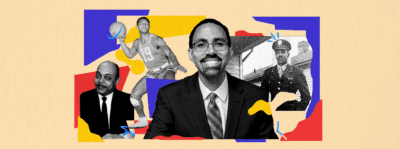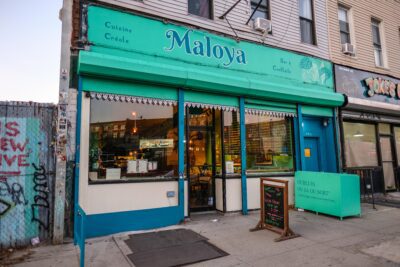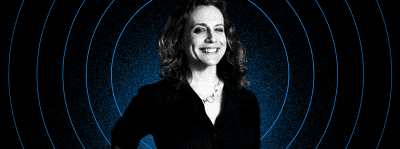Balloon sellers at a Trey Anastasia show at Brooklyn Steel in May (Photo by Eric Berger)
It’s a gas, gas, gas
If the jam band parking lot nitrous scene feels more aggressive than ever, that’s because it probably is
It’s late on a Tuesday night and a mob of people stand outside the entrance to Brooklyn Steel holding clusters of balloons. With the colorful bundles and their eager eyes waiting for the venue doors to burst open, they resemble a crowd waiting for a guest of honor to arrive for a surprise birthday party.
These are not, however, partygoers. They’re party-sellers.
“Whippets. Iced-cold,” one person says, sounding like a vendor offering Bud Light at Yankee Stadium.
On offer are lungfuls of nitrous oxide for concertgoers at the first of three Trey Anastasio Band shows at the venue who want to keep the vibes going. And indeed, about 10 minutes later, fans exit the venue for the sidewalk, where they purchase the balloons and smile like kids who had just gotten slices of cake.
“It just feels good,” Tristan, a 30-something Brooklyn resident, says in between inhalations, his voice becoming deeper after a hit. “You disassociate a little bit.”
Still, a couple other fans balk at the dozen or so dealers holding balloons. They say they had never seen sellers so aggressive, almost blocking an exit.
And that’s saying something because nitrous is in fact a mainstay of the festivities after shows featuring Anastasio’s more famous project. As anyone who has attended a Phish show can tell you, people inhaling nitrous is as much a staple of the parking lot scene as fans dancing during an extended jam inside.
That doesn’t mean everyone likes the chaos that can accompany nitrous sales and consumption outside venues.
Whereas people can discreetly consume a joint or a beer the same way they can a cigarette or soda, recreational nitrous produces what looks and sounds like a combination factory floor and tailgate. The sellers, often described as the “Nitrous Mafia,” carry tanks of gas, which they use to fill balloons. That creates a constant hissing noise — often followed by pops when people accidentally burst the balloons. They call out “iced-cold fatties,” “whippets” or “jumbos,” referring to the balloons. And after consuming the nitrous, sometimes described as “hippie crack,” fans often leave the empty rubber and latex scattered across the ground.
And lastly, there is typically little interference from law enforcement.
“It’s one thing to just do balloons, but it’s become this money-making, nasty underbelly,” Jess, who lives in New Jersey and has seen about 300 Phish shows, says outside Brooklyn Steel. “This concert comes to the town, and this is all people see,” even though it’s just a fraction of the fans.
‘Nothing exists but thoughts!’
Recreational nitrous usage is not a new phenomenon, nor is it unique to Phish shows. People started inhaling “laughing gas” hundreds of years before Phish formed in 1983.
“Nothing exists but thoughts!” Humphry Davy, a renowned English scientist, said in 1799 under the influence of the nitrous, according to “The Experimental Self: Humphry Davy and the Making of a Man of Science.”
The Grateful Dead used nitrous during the recording of their 1969 album “Aoxomoxoa,” and at a 1982 concert, the band delved into a jam centered around a unique reading of Edgar Allen Poe’s “The Raven,” during which a member declared, “More nitrous!”
(For the record, these eerie clips are not representative of the Dead’s whole catalog, in the same way, perhaps, that nitrous sellers and users are not representative of the whole fan base.)
Still, some Deadheads took their cues from the band.
‘It made everything sound better’
Jon Bressner, 64, says he attended about 150 Dead shows and while studying at University of Albany, lived above a dentist’s office. He and his roommates discovered “these big blue tanks” in the basement, so naturally, they walked down the stairs with trash bags, disconnected the hoses, filled the bags with nitrous and then walked back to their apartment, where they put on albums like “Blues for Allah” and “Are You Experienced” and inhaled what would have otherwise gone to a patient needing a filling.
“It made everything sound better,” Bressner, an engineer who lives in Plainview, says on the sidewalk in front of Brooklyn Steel. “If you did enough of it, you could be floating.”
(Bressner says it’s been “many years since I’ve indulged in that particular intoxicant.”)
These days, for people who don’t live above a dentist, there is the “mafia,” who will sell one balloon for $10 or four for $20 and can make thousands of dollars at a show. They also have been accused of using intimidation and violence to monopolize the market.
“It’s a very controlling group, to the point where I’ve seen people get beat up,” the tour manager of the jam-band Umphrey’s McGee told the Village Voice in 2010.
It’s unclear if the people outside Brooklyn Steel are part of the mafia.
“No, I don’t want to talk. No disrespect,” says one seller, who, like others, declines an interview.
Police don’t do much to regulate nitrous, according to fans and business owners, because it’s only illegal when used for recreational purposes — which this clearly is — but that is often difficult to prove.
A person with a nitrous delivery service, Dank Tanks, compared it to when cannabis was still illegal but people could walk into stores offering incense and Bob Marley gear and purchase a bong because they were, clearly, just using it for tobacco.
And for nitrous sellers in New York, even if they are caught, it’s only a misdemeanor. The New York Police Department did not respond to interview requests.
Still, the dealers remain aware that the police could show up.
“Head on a swivel baby,” says one. “Watch your back.”
Bressner thinks consuming nitrous, which produces a high that only lasts a couple minutes, is less harmful than other drugs he tried, but regular consumption can lead to memory loss, vitamin B12 depletion and psychological dependence, among other issues, according to the Alcohol and Drug Foundation.
A 40-something fan named Matty, who estimates that he has attended between 250 and 300 Phish shows, stands outside in a hat with the word “Tweezer,” one of Phish’s most beloved songs, holding a few pink balloons. He encourages others to buy from a friend whose balloons are all pink and has “best gas on lot.”
“I’ve been behind the tank; I’ve been in front of the tank,” says Matty, who declined to give his last name. “It’s just easy money.”
Nitrous is also, he says, “an inferior drug.”
“I got a little fucked up on it, actually. I thought I knew the side effects of every drug that I do. It turns out that it doesn’t just rot your brain; it will actually deplete your vitamin B12,” he says.
A few minutes later, a nearby fan doing nitrous collapses and appears to hit his head. Others make sure he’s OK before he gets up and walks off as though nothing happened.
Feeling deflated
Lindsey Green, veteran of about 175 Phish shows, has been sober since 2008 but prior to that did plenty of nitrous.
“I certainly don’t judge it,” says Green, who drove from Scranton to celebrate her 45th birthday and attend a show “to celebrate life and feel alive and connect with my friends over that feeling.”
Actually, maybe she judges one element of the phenomenon: Green owns a shop that sells handmade soap and other eco-friendly products — and she wishes there were a sustainable, safer way for people to do nitrous.
“I understand 100 percent how fun it is,” she says. But “seeing all the balloons and the waste and trash that is left behind after every show where nitrous is so present is the sad part about it.”
While fans are still slurping up nitrous by the balloonful, a person who appears to work at the venue emerges with a broom to sweep up the remains. He doesn’t seem as joyful as the fans.
Ethan Quiñones spent four years as a bartender at 18th Ward Brewery, which sits across the street from the venue, where he also frequently attended shows. He says nitrous was part of why he quit working at the brewery last year: Between when he started in 2019 and left four years later, the amount of people doing the drug outside the venue increased significantly.
That meant more arguments with people selling and consuming nitrous outside the brewery and less money in his pocket because people were spending money on nitrous rather than buying beers and food, he says.
“The worst is when people would come in with balloons, so then it becomes my responsibility or the bouncer’s responsibility to get them out of there because now we’re responsible if they fall and crack their head,” Quiñones says. “They just kind of suck the fun out of the whole thing.”
Tristan, the Brooklyn resident with the handful of balloons, still seems to have fun, though.
“The nitrous tonight was pretty good, actually,” he says.
Asked what makes nitrous good, he laughs and says, ”I don’t know. It works. It does what it’s supposed to do.”
You might also like 


























